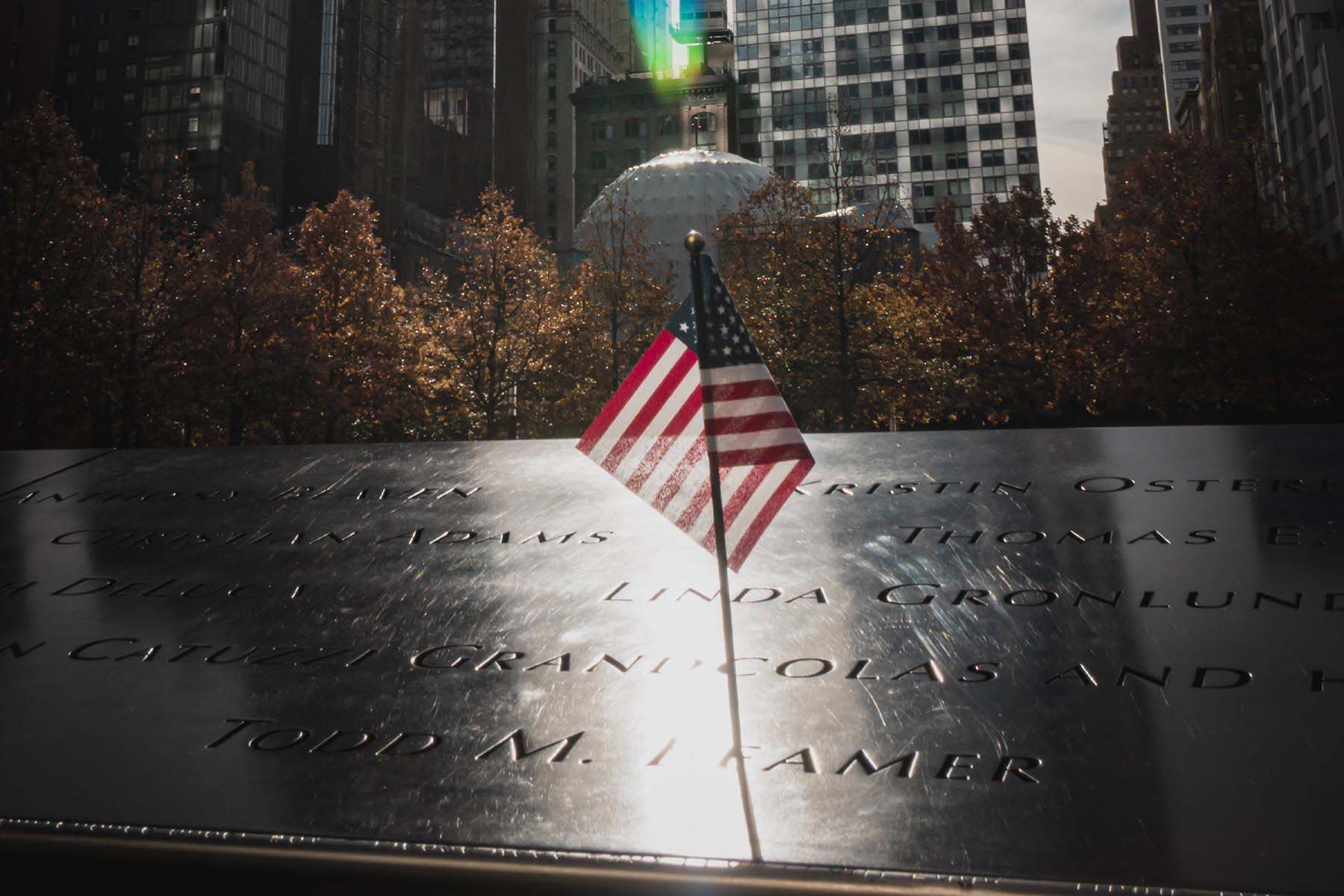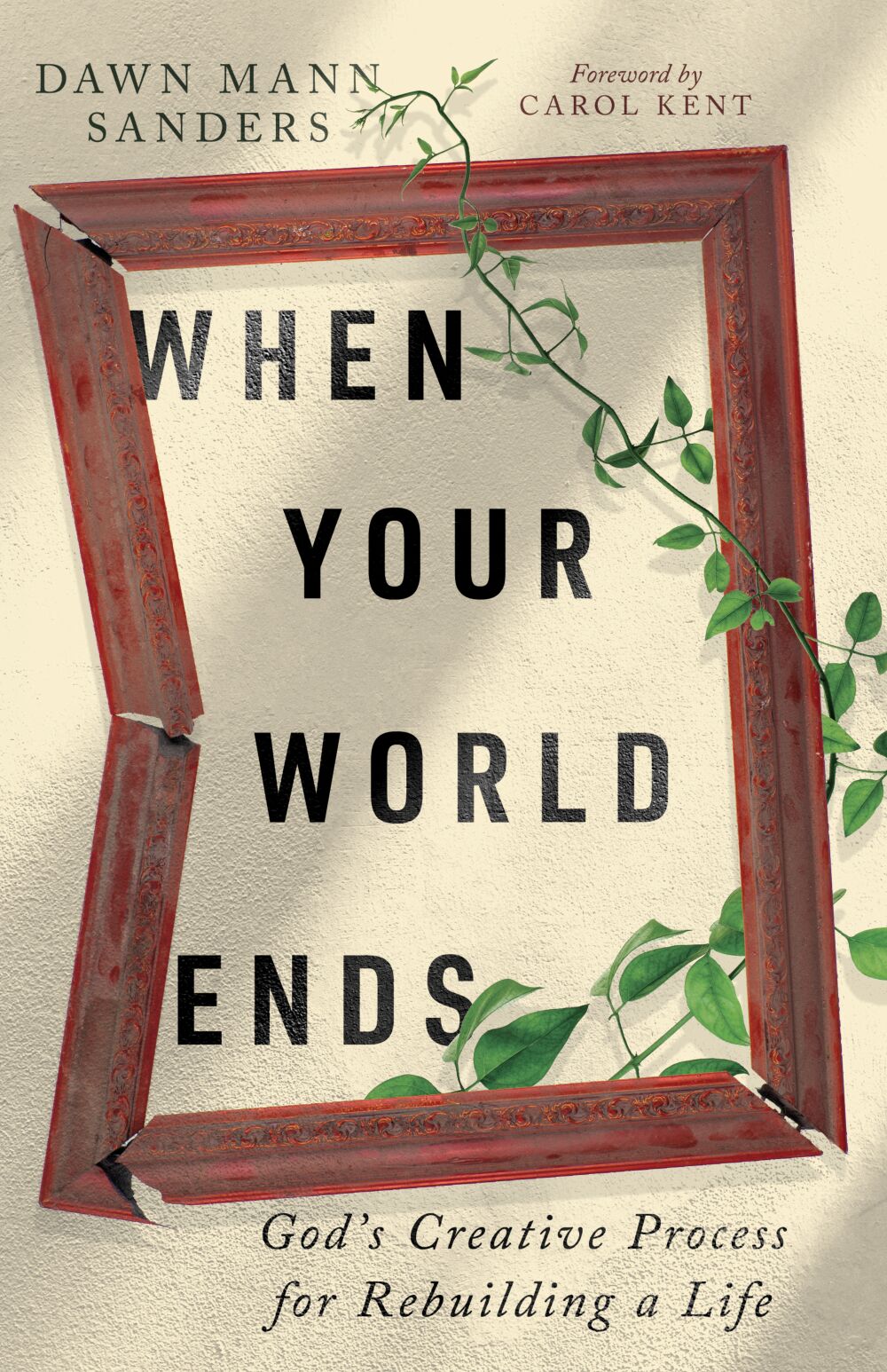Today (September 11, 2021) marks the 20th anniversary of the terrorist attacks on the United States where hijackers crashed four jets into the World Trade Center’s Twin Towers in New York City, the Pentagon in Arlington, Virginia, and a field near Shanksville, Pennsylvania killing almost 3000 Americans.
First, my heart goes out to my fellow countrymen and women. We lost much that day. We lost fellow Americans—on 9/11 and in the months and years following, our sense of security in regard to terrorist attacks on American soil, and our ability to fly without removing our shoes or putting our liquids in a baggie to name a few.
So is the impact of catastrophic events. They rarely affect our lives in just one way. No, their devastation can be deep, wide, and far-reaching.
Catastrophic events rarely affect our lives in just one way. Their devastation can be deep, wide, and far-reaching.
That is on my mind today, as I, like many Americans across our country, remember the attacks, my experience of this event, and my response.
My Memory of 9/11
Like many people on the East Coast, I was at work when the first plane hit the North Tower of the World Trade Center. I learned of the crash from my office mate who caught some of the initial news coverage as he passed the monitors that hung in the hallway outside our offices.
As I joined him and several other co-workers who had gathered to watch the news, I remembered the 1993 truck bombing in the World Trade Center’s parking garage. I, then, commented about how risky working there was and how I couldn’t do it. A few minutes later, the second plane hit the South Tower confirming my unspoken suspicion that this, like the truck bombing in 1993, was no mere accident. Quite the contrary, this was an attack.
The realization that this was an attack caused many of my co-workers’ great concern. Some were concerned for our country, some were concerned for their loved ones, and some for themselves—since we worked outside Washington, DC, our nation’s capital.
I was surprisingly calm. I had the peace that surpasses all understanding (Philippians 4:6-7). At the time, it was just me. I didn’t have children or a spouse to worry about. I did give a momentary thought to my parents, who in my mind, being retired, were safe at home. So, while different motivations had my co-workers scrambling, I returned to my desk and continued to work in many ways disconnected from the distress and damage happening in other states.
A few hours went by with the occasional co-worker stopping by to chat about the morning’s events. It wasn’t until one of them mentioned my parents might be worried about me that I called my parents to relieve them of any such anxiety. Ironically, aside from leaving when my office closed for the day shortly after that, I don’t remember much else about that day.
Biblical Remembrance
Biblically, remembering precedes action—both on God’s part and ours. On God’s part, we see remembering preceding God ending the flood and opening Rachel’s womb:
Then God remembered Noah, and every living thing, and all the animals that were with him in the ark. And God made a wind to pass over the earth, and the waters subsided. ~ Genesis 8:1
Then God remembered Rachel, and God listened to her and opened her womb. ~ Genesis 30:22
We also see remembering as a prerequisite in God’s charge to follow His commandments and to repent.
Speak to the children of Israel: Tell them to make tassels on the corners of their garments throughout their generations, and to put a blue thread in the tassels of the corners. And you shall have the tassel, that you may look upon it and remember all the commandments of the Lord and do them, and that you may not follow the harlotry to which your own heart and your own eyes are inclined, and that you may remember and do all My commandments, and be holy for your God. ~ Numbers 15:39-40
Remember therefore from where you have fallen; repent and do the first works, or else I will come to you quickly and remove your lampstand from its place—unless you repent. ~ Revelation 2:5
In the Old Testament and the New, we see remembering preceding acting. When I think about the act of remembering, I am not surprised that God pairs it with action throughout Scripture because we have known for years that visualization—generating visual images—increases our chances of succeeding at a goal.
Visualization reminds us (see what I did there?) of what we want to accomplish and why we want to accomplish it. Both are powerful motivators for acting on our goals. Connecting with our whys also reinforces our belief systems shifting our wants to cans. For instance, “I want to create a new life” becomes “I can join God in creating a new life.”
Visualization reminds us of what we want to accomplish and why we want to accomplish it. Share on XAlso, shifting from desire to faith gets God’s attention. Without faith, it is impossible to please Him, but He rewards those who seek Him (Hebrews 11:6).
Courage, Calm & Connection
When I remember 9/11, I am reminded of three things that can help me create a new life: courage, calm, and connection.
1. Courage
On 9/11, I commented that working in the Twin Towers was risky. It takes courage to take risks. It also takes courage to step out in faith and begin a new life.
There is the risk that the grass may not be greener on the other side. We believe it will be, but we could be wrong. Or it may be greener on the other side, but we may not have a direct trip. It took the children of Israel 40 years to complete an 11-day journey. So, there is the risk of taking wrong turns along the way.
You need courage to overcome the risks and the fear that it might not work out.
2. Calm
I was surprisingly calm on 9/11. I just knew I was going to be okay. That knowing was faith. When it came to my safety, I didn’t just desire to be safe; I also knew I would be safe.
Knowing the truth about our current situation enables us to remain calm. The truth makes us free, free to be calm. It is when we don’t know the truth that we are in trouble.
Also, as faith, that knowing was an activity of my belief system. As part of my belief system, it got God’s attention. The same is true when creating a new life.
3. Connection
Lastly, I reached out to let my parents know I was okay. I was able to be calm because I knew the truth that I was okay. I had a responsibility to pass that truth on to my loved ones, so they could know the truth too.
Connection is vital for sharing truths. Receiving truths requires wise counsel, like a Christ-centered, Bible-teaching church and spiritual leaders. But it doesn’t stop there. Once we have the truth, God calls us to shine the light of the truth in the lives of others.
Sharing God’s truth by shining my light is a big part of creating my new life. My hope and prayer are that these truths bless you as you join God in creating yours.







